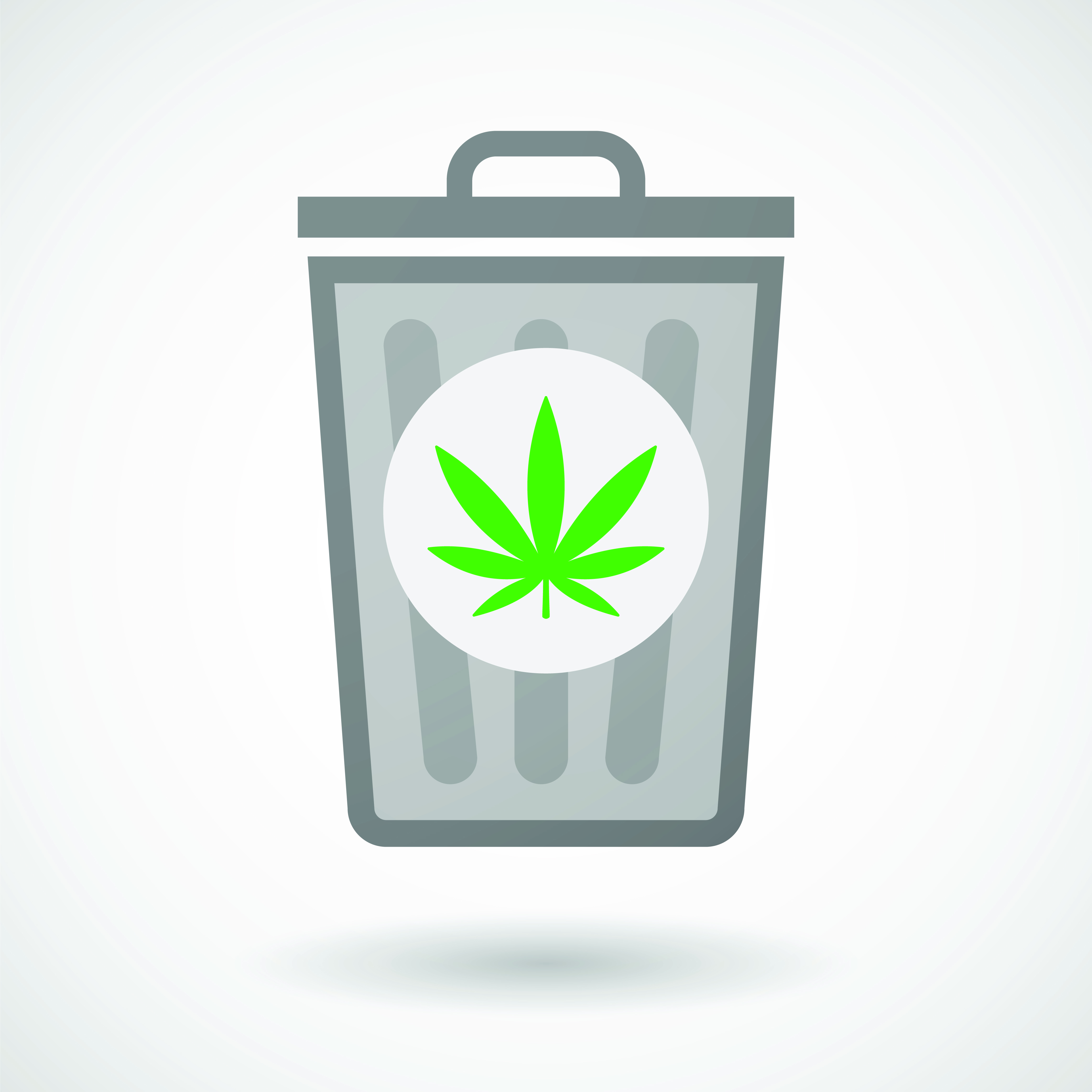New Jersey Marijuana Waste Disposal Requirements for Dispensaries and Alternative Treatment Centers

The New Jersey medicinal marijuana program continues to expand its list of qualifying conditions.
As more New Jersey residents become qualified for medical marijuana and more Alternative Treatment Centers (ATCs) open their doors across the Garden State, regulations for the disposal of waste from marijuana operations are being considered.
NJDOH Regulations
Regulations will be proposed by the newly created Cannabis Regulatory Commission, which will operate independently of the New Jersey Department of Health (NJDOH has been the state regulatory agency overseeing the New Jersey medical marijuana program) once its five members are seated.
Fortunately, other states with more mature marijuana programs have been grappling with the waste disposal issue with the nascent industry. Presumably, similar to other highly regulated industries operating in New Jersey, proposed regulations for the marijuana industry will provide specific requirements and best practices for marijuana waste disposal.
Thus far, the only released publication from New Jersey regulators to the industry with regard to marijuana waste disposal was referenced in the NJDOH’s April 2019 rule adoption notice. In that rule adoption, the NJDOH responded to a comment that it “should allow [ATCs] to dispose of waste plant material by … means [other than] incineration [such as] composting, shredding[,] and mixing with soil to render unusable or allowing [a third-party] waste disposal company to take the waste.”
The NJDOH responded to this comment by saying that it issued guidance to the then ATCs in August 2018 providing that ATCs can shred and mix waste material to render it unusable and then dispose of it as solid waste. In obtaining a copy of this NJDOH “guidance” (which is actually dated October 2, 2018] (hereinafter referred to as the “Guidance Letter”) issued to “All New Jersey Licensed Alternative Treatment Centers (ATCs),” the NJDOH noted that it consulted with the New Jersey Department of Environmental Protection (NJDEP) on this topic.
The Guidance Letter
The Guidance Letter is only applicable to waste that is comprised of “unusable marijuana,” which is defined as “marijuana seedlings, seeds, stems, stalks, or roots.” And any material that falls under the definition of “usable marijuana” shall still be stored in a locked area until which time it can be escorted to an NJDEP permitted incinerator by Division of Medical Marijuana (within the NJDOH) staff and destroyed. Such materials include but are not limited to returned, recalled, out of date marijuana and packaged manufactured products (lozenges, oil, topicals, etc.). Moreover, the Guidance Letter notes that any waste that is considered hazardous under NJDEP regulations is not covered. Additionally, only extracted plant material that is free from hazardous materials – such as solvents – may be considered unusable marijuana and therefore covered by the Guidance Letter.
The Guidance Letter further states that ATCs may dispose of their “unusable marijuana” waste as solid waste or compost it, provided they follow the procedures set forth in the Guidance Letter, as follows:
In order to dispose of the “unusable marijuana” as solid waste or composting, ATCs shall first render it useless for diversion by:
- Finely shredding or grinding the unusable marijuana; and
- Mixing the finely shredded/ground plant waste with non-consumable, biodegradable material or other ground materials so the resulting mixture is at least 50% non-marijuana waste by volume.
The Guidance Letter says that the shredding/grinding and mixing must take place on the ATC premises within an area that is secured and locked and visible to securing cameras.
After shredding/grinding and mixing the “unusable marijuana” waste, the material must be stored in a secure, locked container or space until it can be disposed of. The locked container may be outside the facility as long as it is within view of a camera.
For disposal, “unusable marijuana” waste may be:
- Disposed of as solid waste at a solid waste site and disposal facility permitted by the NJDEP.
- Composted on-site, provided all materials in the mixture are compostable materials, at a facility owned by the ATC and operated in compliance with all applicable environmental law and NJDEP regulations.
In disposing of via solid waste, ATCs may utilize standard solid waste collection to transfer to an NJDEP permitted solid waste facility.
If composting on-site, ATCs shall only compost in a secure, locked container or space as approved by the NJDOH.
ATCs are also required to comply with the recordkeeping requirements under N.J.A.C. 8:64-9.9.
Environmental Issues
Notably, New Jersey’s failed adult-use bills did not require any specific waste practices to be implemented; rather, they merely required cultivation and dispensary applicants to provide a waste disposal plan with the license application.
We know that in the age of environmental awareness and increased interest in sustainability, New Jersey regulators will adopt regulations for the disposal of cannabis (including marijuana and hemp) waste. Indeed, the California Supreme Court recently weighed in on San Diego’s failure to require environmental impact statements on new dispensaries.
Marijuana operations implicate environmental issues, including worker safety, air quality, composting, wastewater disposal, and hazardous and solid waste disposal. Industry innovation processes (i.e., Kind ReDesigned's Bokashi fermentation waste disposal), new equipment (i.e., Alpine Waste and Recycling's compactor), and new technologies (i.e., Sesh Technologies Manufacturing's rosin press) should play a role in the development of waste regulations. In addition, a company called WasteTrakr provides cannabis clients with a software platform to track the rendering and disposal of the waste at approved recycling and landfill facilities. In addition, the WasteTrakr software enables its clients to monitor the hauler. One can be sure that the industry regulators will require waste disposal documentation.
Those who wish to operate cultivation and dispensary facilities in New Jersey or provide support services, like waste disposal, should be ready to track the Cannabis Regulatory Commission’s proposed regulations in the months and year ahead.
We will continue to keep you apprised of any new developments on marijuana waste disposal. If you have questions about this or any cannabis-related topic, please feel free to contact me at wjbeneduce@norris-law.com.

